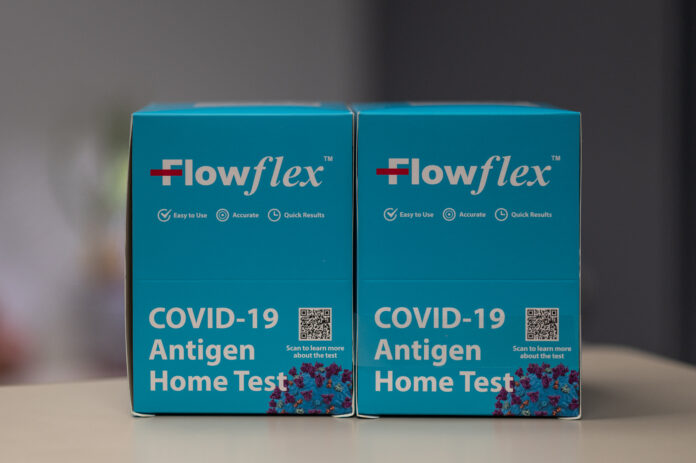
Our View is a staff editorial produced collaboratively by the entire Rocket Staff. Any views expressed in the editorial are the opinions of the entire staff. To review our editorial policy, which includes our blotter policy, click here.
Positive cases. Deaths. Four and a half years ago, COVID-19 statistics were inescapable. The numbers were everywhere. So were the protocols. Do you have symptoms? Did you test positive? Were you exposed? Not only did the CDC conjure detailed protocols for each situation imaginable, but local institutions publicized their instructions for these cases. Slippery Rock University put out a dashboard of COVID-19 statistics on campus, recording its first case on Aug. 20, 2020.
Today, COVID is still affecting campus. When a member of The Rocket tested positive for COVID last week, they were unsure what the current standards were for isolation and masking. They did their own research through the CDC and other national health resources. “Even then, I found conflicting information from the CDC, Cleveland Clinic, PA Department of Health, etc,” they said. Much of the most recently published information was from 2023, when COVID-19 was named endemic.
Even though we acknowledge that COVID-19 is not as big of a concern as it once was, we urge the university and other institutions to inform the public. Only then can individuals make personal decisions that are right for them.
We can only operate based on the information that is made known to us. We make our most informed decisions about whether to mask, isolate, attend class and more when we know the full story.
We believe that COVID is not “gone” or “over” and should be treated as other viruses we have yet to study in their entirety. We especially want to emphasize the impact of endemic COVID on immunocompromised individuals, people over the age of 65 and pregnant women. We have a duty, pandemic or not, to be aware of how our actions affect those around us.
Whether or not you have pre-existing comorbidities that put you at risk if you contracted COVID, there are still the long term effects of the virus to consider. COVID-19 is still a relatively young virus in the context of our world, and there is much scientists have yet to understand about long COVID and the virus’ aftereffects.
It is estimated that between five and 30 percent of people with COVID-19 will have long COVID, which is considered a chronic illness and, in some cases, a disability.
In addition, the psychological aspects of the pandemic cannot be ignored. We believe that society has not healed from what we collectively experienced. When COVID-19 hit, we pledged to slow down and bake more sourdough bread. Checking in four and a half years later, did we adhere to our promise? Our fast-paced world encourages us to move on to the next thing.
The contrast in how we think about COVID from 2020 to 2024 is evident in this year’s presidential election compared to last. In 2020, plans to distribute vaccines and mitigate the spread of the virus were central to presidential campaigns. Now, if COVID-19 is mentioned in politics, it is in reference to criticizing or praising how president Joe Biden’s administration went on to handle the crisis.
We cannot live in a constant state of fear, but we must be informed.
It is the responsibility of institutions like Slippery Rock University to make COVID tests, masks and data accessible even as the impact of the virus wanes. It is up to SRU to establish a culture where we care for those around us and stay home when we are sick without risking our grade dropping. Whether it’s COVID or the flu, cold season is here, and the only way to get through it together in good health is to recognize that our actions extend far beyond us.
As individuals, it is our responsibility to monitor how we are feeling. We are not bombarded with symptom questionnaires when we enter buildings anymore, but that does not mean we should stop checking in on ourselves. Does a stuffy nose warrant canceling plans? Is a sore throat cause to mask for a day? These are the decisions we must make with the information we are provided.
We will, inevitably, get sick and get others sick no matter what we do. However, did COVID not teach us to be more considerate and careful?






